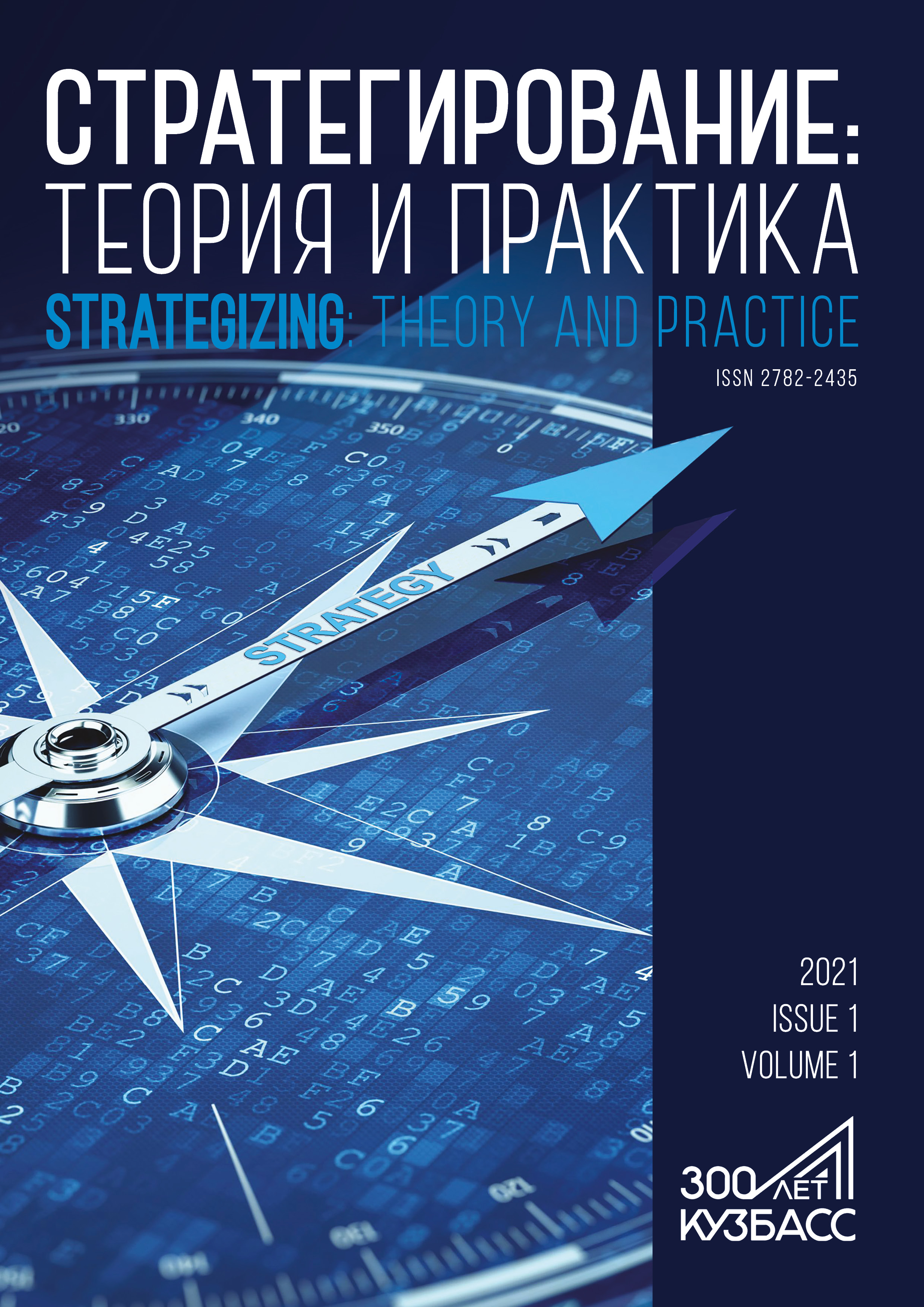Moscow, Moscow, Russian Federation
Moscow, Moscow, Russian Federation
The author used the general theory of strategy and methodology of strategizing to interpret the digital transformation of public administration. He described the digital transformation of public administration as a public value with a strategic perspective of national economic growth that will eventually improve the standard of living and the welfare of citizens. The research combined theory and practice with the achievements of different economic strategy schools. The author tested the digital public administration using Professor Vladimir Kvint’s methodology of strategic thinking and activity and the Gostekh digital platform. The author also applied the Clark-Groves mechanism to urban environment as a tool for selecting public projects. The scientific and applied nature of the research made it possible to determine the strategic perspective for the digitalization of public administration as a means of selecting landscape objects and public territories for landscaping via online voting.
digital transformation, public administration, strategy, strategizing, strategic management, public value, public sector economics, Clark-Groves mechanism
1. Agabekov S, Levina E. Lobbying for protection by oligopolists and lobbying coordination. Journal of Modern Competition. 2015;9(5):107-118 (In Russ.).
2. Kvint VL. The concept of strategizing. Vol. 1. St. Petersburg: NWIM RANEPA; 2019. 132 p. (In Russ.)
3. Kvint VL. The concept of strategizing. Vol. 2. St. Petersburg: NWIM RANEPA; 2020. 164 p. (In Russ.)
4. Kvint VL. The concept of strategizing. 2nd ed. Kemerovo: Kemerovo State University; 2022. 172 p. (In Russ.) https://doi.org/10.21603/978-5-8353-2562-7
5. Keyns Dzh. M. Obshchaya teoriya zanyatosti, protsenta i deneg [General theory of employment, interest, and money]. Moscow: Eksmo, 2022. 957 p. (In Russ.)
6. Krogerus M, Cheppeler R. Kniga resheniy. 50 modeley strategicheskogo myshleniya [The book of solutions. 50 models of strategic thinking]. Moscow: Olimp-Biznes; 2012. 208 p. (In Russ.)
7. Marx K. Kapital [Das Kapital]. Moscow: AST; 2022. 541 p. (In Russ.)
8. Mikroekonomika. Promezhutochnyy uroven. Sovremennyy podkhod [Microeconomics. Intermediate level. Modern approach]. Ed. NL Frolovoy. Moscow: YuNITI; 1997. 767 p. (In Russ.)
9. Mikroekonomika. Tretiy uroven. [Microeconomics. Level Three]. VP Busygin, EV Zhelobodko, AA Tsyplakov; Novosibirsk: Izd-vo SO RAN; 2008;2 (In Russ.)
10. Mintsberg G, Apstrend B, Lempel Dzh. Shkoly strategiy [Strategy schools]. Moscow: Kniga po Trebovaniyu; 2017. 330 p. (In Russ.)
11. Mulen E. Teoriya igr s primerami iz matematicheskoy ekonomiki [Game theory with examples from mathematical Economics]. Moscow: Mir, 1985. 199 p. (In Russ.)
12. Novikova IV. Strategic leader in the digital economy: role, qualities and characteristics. Social & Labor Research. 2021;4:150-160. (In Russ.) https://doi.org/10.34022/2658-3712-2021-45-4-150-160
13. Novikova IV. Strategic Human Resource Management. Moscow: KNORUS; 2022. 178 p. (In Russ.)
14. Smith A. Issledovanie o prirode i prichinah bogatstva narodov [An Inquiry into the Nature and Causes of the Wealth of Nations]. Moscow: AST; 2022. 1068 p. (In Russ.)
15. Startseva NP. SWOT-analiz kompanii [SWOT analysis of the company]. Moscow: Laboratoriya Knigi; 2010. 62 p. (In Russ.)
16. Strategizing the national economy during a period of burgeoning technological sovereignty. V. L. Kvint [et al.]. Administrative Consulting. 2022;9:57-67. (In Russ.) https://doi.org/10.22394/1726-1139-2022-9-57-67
17. Business policy: Text and cases. Eds. EA Learned [et al.]. Irwin: Homewood, 1965.
18. Groves T. Incentives in teams. Econometrica. The Econometric Society. 1973;41:617-631. https://doi.org/10.2307/1914085
19. Hurwicz L. Optimality and informational eciency in resource allocation processes. Eds. KJ Arrow, P Suppes, S Karlin. Mathematical Methods in the Social Sciences. 1960:27-46.
20. Sevier RA. Not SWOT, but OTSW. Thinking outside the box: some (fairly) radical thoughts on how colleges and universities should think, act, and communicate in a very busy marketplace. Hiawatha, Iowa: Strategy Pub. 2001. p. 46.







